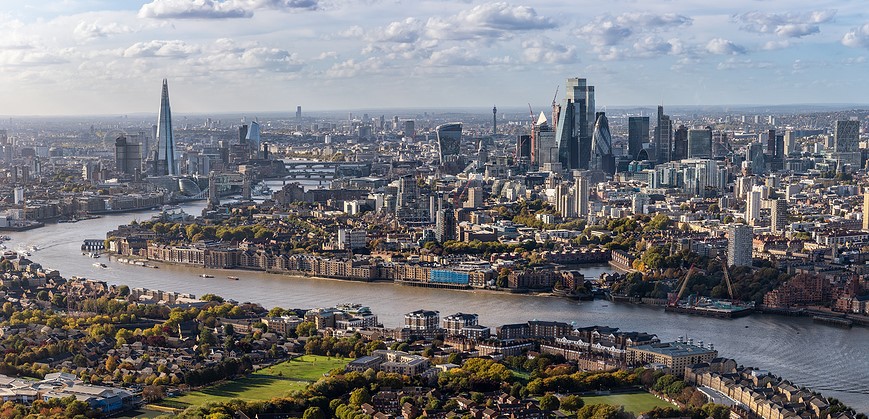News
UK Rivers Branded A National Disgrace
Waterways around the UK have been branded a “national disgrace” by the chief executive of the Wildlife Trusts, with various rivers in England now at particular risk from pollution such as plastics, human and farmyard sewage, industrial and household chemicals, pesticides and fertiliser.
Speaking to iNews, Craig Bennett observed that the current “laissez-faire approach” to pollution is allowing the nation’s rivers to fill up with human and animal waste, leading to potential ecological collapse for many.
Those rivers identified as being at particular risk include the Wye, the Severn, the Thames, Cunsey Beck, the Fal, the Yar, the Ribble, the Witham, the Usk, the Trent, the Wharfe, the Itchen, the Stour and the Windrush, among others.
The River Wye, for example, is in decline in large part because of the growth of intensive poultry farming. Waste from chickens is being spread onto farmland as fertiliser, which is overloading the soil with phosphates… and this makes its way into the water, causing pollution.
Reports have been coming in that stretches of this river are now covered in algae and sediment, which is having an impact on river quality and health, as well as local biodiversity.
The River Severn, meanwhile, suffers from sewage discharges, with 2021 seeing thousands of incidents involving water companies making discharges into the water.
Another issue affecting the longest river in England is agricultural pollution, with Shropshire and Worcestershire Wildlife Trusts now collaborating with local farmers and Severn Trent Water to stop soil, chemical and farm pollution from entering the water.
As for the River Thames, this watercourse has suffered from sewage pollution in the past, but a new system built towards the end of the 19th century has seen it classified as one of the cleaner urban rivers to be found in the world.
That being said, it is now being badly affected by plastic pollution, with studies showing that up to 94,000 microplastics per second flow down the river.
Commenting on river health, Mr Bennett said: “We should be swimming in our rivers and watching spectacular wildlife in all its glory – not standing on riverbanks gazing in sorrow at algal blooms and dead fish.”
“Agriculture, closely followed by the water industry, is the biggest source of pollution in UK rivers. The government must help farmers to reduce by 50 per cent the use of dangerous chemicals by 2030, as agreed at the COP15 global biodiversity summit in December, as well as helping farmers to create wilder areas and to stop runoff from manure.”
This comes after the government announced investments of £5 billion to be made over the next five years to improve the quality of England’s waterways, tackling both pollution and climate change head on.
The plan includes a series of different measures to address the challenges posed by agricultural and water supplier pollution, as well as population growth and the changing climate.
Do you want to switch water supplier at the moment? Get in touch with the H2o Building Supplier team today to see how we can help.
